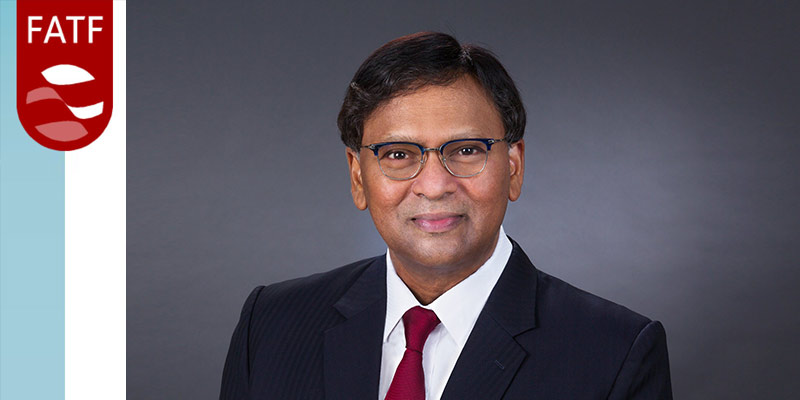- World
- Jul 05
Singapore’s Raja Kumar is new president of FATF
T. Raja Kumar from Singapore began a two-year term as president of the Financial Action Task Force (FATF) on July 1. He succeeded Marcus Pleyer of Germany.
Raja Kumar has held a wide range of senior leadership roles in the ministry of home affairs in Singapore and the Singapore Police Force for over 35 years.
He was awarded Singapore’s prestigious National Public Administration Gold medal in 2021, the Public Administration Silver medal in 2007, and the Public Administration Bronze medal in 1996 for his strong leadership and contributions.
He was conferred the National Order of Merit by the government of France in 2017, carrying the rank of Chevalier (Knight). In recognition of his contributions to the casino regulatory community, he was made a Lifetime Trustee of the International Association of Gaming Regulators in 2011.
The FATF president is a senior official appointed by the FATF Plenary from among its members.
The president convenes and chairs the meetings of the FATF Plenary and the Steering Group, and also oversees the FATF Secretariat.
What is the FATF?
• The FATF is an inter-governmental body established in 1989 by the ministers of its member jurisdictions.
• The objectives of the FATF are to set standards and promote effective implementation of legal, regulatory and operational measures for combating money laundering, terrorist financing and other related threats to the integrity of the international financial system.
• The FATF is a policymaking body that works to generate the necessary political will to bring about national legislative and regulatory reforms in these areas.
• The FATF currently has 39 members including two regional organisations — the European Commission and Gulf Cooperation Council.
• India is a member of the FATF consultations and its Asia Pacific Group.
The FATF has two types of lists:
1) High Risk Jurisdictions Subject to a Call for Action (Black List)
2) Jurisdictions under Increased Monitoring (Grey List).
1) Black List
• High-risk jurisdictions have significant strategic deficiencies in their regimes to counter money laundering, terrorist financing, and financing of proliferation.
• This list is referred to as the ‘Black List’.
• For all countries identified as high-risk, the FATF calls on all members and urges all jurisdictions to apply enhanced due diligence, and, in the most serious cases, countries are called upon to apply counter-measures to protect the international financial system from the money laundering, terrorist financing, and proliferation financing risks emanating from the country.
• Iran and North Korea are on the FATF ‘Black List’.
2) Grey List
• Countries that are considered as safe havens for supporting terror funding and money laundering are included in the “Grey List”.
• Jurisdictions under increased monitoring are actively working with the FATF to address strategic deficiencies in their regimes to counter money laundering, terrorist financing, and proliferation financing.
• When the FATF places a jurisdiction under increased monitoring, it means the country has committed to swiftly resolve the identified strategic deficiencies within agreed timeframes and is subject to increased monitoring.
• The FATF and FATF-style regional bodies (FSRBs) continue to work with the jurisdictions below as they report on the progress achieved in addressing their strategic deficiencies.
• The FATF calls on these jurisdictions to complete their action plans expeditiously and within the agreed timeframes.
• Inclusion in the Grey List makes it difficult for a country to get financial aid from world bodies such as the IMF. The list makes it difficult to get investors and creditors, adversely impacts exports, output and consumption and also makes it difficult for global banks to do business with a listed country.
Manorama Yearbook app is now available on Google Play Store and iOS App Store

